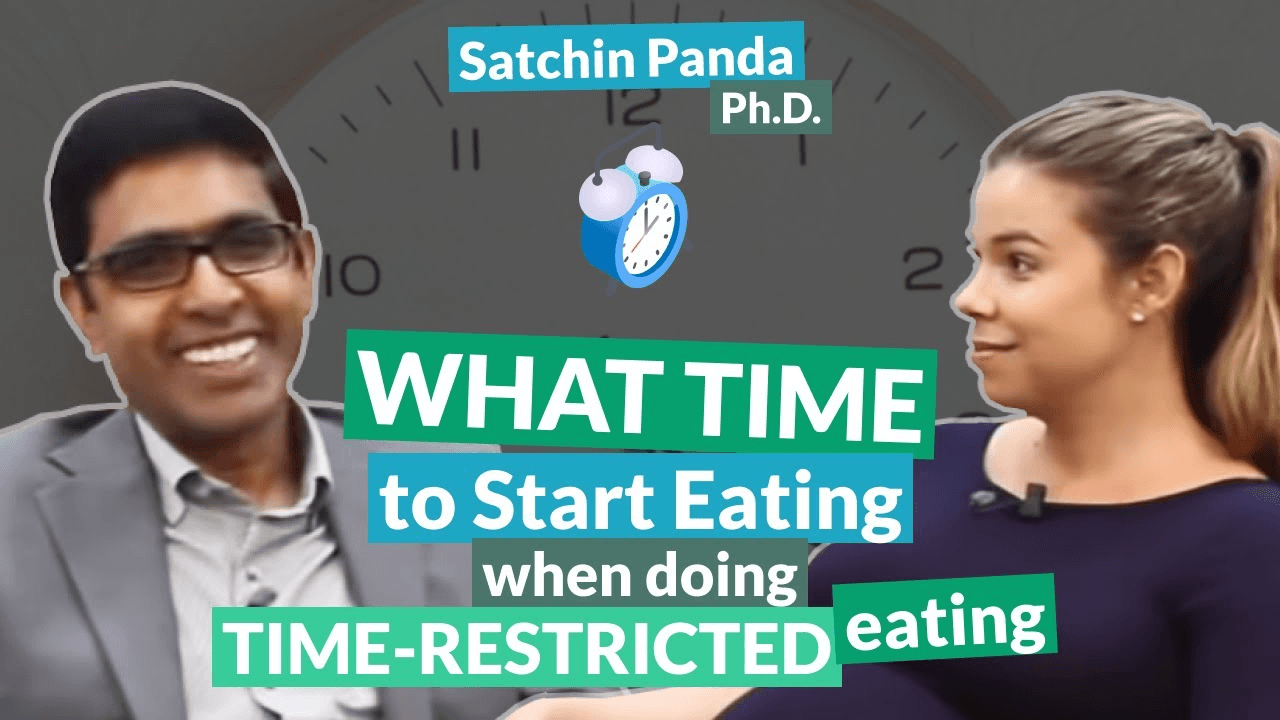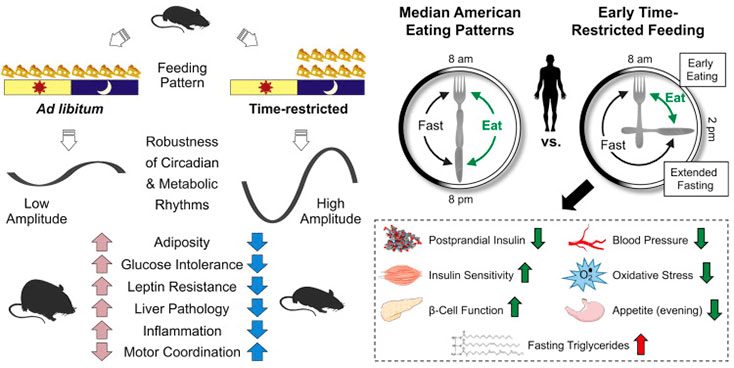Restrict your eating window to 8-10 hours
TLDR:
Restricting your eating to 8-10 hours has shown significant health benefits in both animals and humans, including improved metabolic health, reduced inflammation, and better glucose management. The idea is based on aligning eating patterns with the body's natural circadian rhythms, optimizing metabolism during daytime hours when humans are biologically designed to be most active.
Rhonda notes that the eating window starts the moment you put anything into your body that isn’t water, that even includes tea or coffee!
Rhonda Patrick on Time Restricted Eating
Rhonda Patrick practices an 8-10 hour time-restricted eating window, citing Dr. Satchin Panda's research.
Most people eat over a 15-hour period, starting with morning coffee and ending with a late-night snack. However, Patrick emphasizes that even consuming non-water beverages like tea or coffee starts the metabolic clock.
According to research, eating within a 12-hour window aligns with the body's natural circadian rhythms, optimizing metabolism for glucose and fat utilization. Extending beyond this period can lead to decreased metabolic efficiency, increased insulin resistance, and a shift towards fat storage rather than burning. This approach highlights the importance of aligning eating habits with our biological clocks to enhance health outcomes.
Podcast Appearances
She has some excellent interviews with Dr. Satchin Panda. They are a little dated and Rhonda has appeared recently Thomas DeLauer's podcast (12 minute clip) with some new takes based on more recent studies. We highly recommend giving both a listen.

- Interview with Dr. Satchin Panda (2016)
- Interview with Dr. Satchin Panda (2017)
- Interview with Dr. Satchin Panda (2021)
Mice: Time-Restricted Feeding Study
Studies on mice have shown remarkable benefits from time-restricted feeding, even when consuming the same high-fat diet. A 2012 study found that mice restricted to an 8-hour eating window had
- Lower body fat
- Reduced inflammation
- Better motor coordination
- Improved glucose tolerance
This is compared to mice that were allowed to eat anytime. These results suggest that the timing of food intake, rather than just the type or amount, plays a crucial role in metabolic health.

Humans: Time-Restricted Feeding Study
In humans, a 2018 study conducted on men with pre-diabetes showed promising results for time-restricted feeding.
Participants who ate within a 6-hour window had improved insulin sensitivity, reduced blood pressure, and decreased oxidative stress after just 5 weeks, compared to those with a 12-hour eating window.
This suggests that narrowing the eating window can have immediate positive effects on metabolic markers and overall health, particularly in those at risk of metabolic diseases.

Dr. Rhonda Patrick
Cell Biologist & Podcast Host (FoundMyFitness)
...
Dr. Rhonda Patrick is a cell biologist and cofounder of FoundMyFitness, a compendium of resources focused on promoting healthspan, longevity, and overall fitness through nutrition, exercise, and lifestyle behaviors.
Categories:
Disclaimer: The information presented on this website are for informational and entertainment purposes only. Please consult a medical professional when considering changes to your routine, supplements, etc.
Additionally, please note that some product links in our content are affiliate links. While not all routines & products are officially endorsed by the individuals mentioned, we strive to ensure that the information we provide is accurate and up-to-date.

